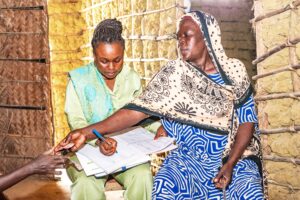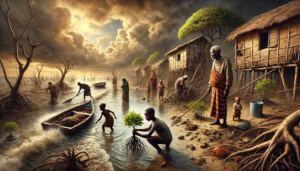While not everyone has access to the ocean or lives along the coast – every single human on this planet is greatly dependent and affected by this pulsing liquid life force that surrounds us. This World Oceans Day, in a combined effort between South Africa, Kenya, Cameroon and Tanzania – the ocean was brought to hundreds of people across Africa without having to step foot into the water.
If you can’t bring everyone to the ocean, can you bring the ocean to them?
Many grabbed the opportunity, bringing their children, parents and friends to this incredible experience of witnessing the ocean and deep sea in virtual reality (VR). And what is more incredible is that there was not a single entry fee – providing access to literally everyone.
VR is a relatively new technology, and I recall my first environmental VR experience – a film about Rhino Poaching at the NEWF 2019 congress. It brought me to tears instantly. It is such an immersive technology and to see it being used for conservation like this is amazing. Technology and media play such important roles in our understanding, witnessing and respecting our wildlife and the growth of our civilisation.

Buyuni Village, Tanzania
This event was made possible through NEWF, Africa Refocused, Street Whale, Mombasa Ocean Festival and AFO.
Without stepping a foot off land, Africans all over the continent, were exploring their oceans, marvelling at their wildlife; seeing under their own waters for the very first time. The VR transported them to a three dimensional film of Sodwana Bay, South Africa – one of the top dive sites in the world.
The film which was made by NEWF fellows, exposed people to coral reefs, sea turtles stingrays and so much more – including a local divemaster from Sodwana Bay, Slindile Mbuyazi.
In Cameroon, a monument was constructed during the 5 day festival in the heart of Kribi city.

“The monument will continuously remind the habitants of the city and its visitors that the oceans and us are one – we need to protect it” – Aristide Takoukam Kamla, National Geographic Explorer and Marine Researcher (Street Whale).
AFO (Aqua-Farms Organisation) in Tanzania launched their World Oceans Day event under the theme, Tides are changing. Two events were held in the country, one in Mlimani City Mall in Dar es Salaam and another in the coastal fishing village of Buyuni.
Nancy Iraba the underwater programme lead of AFO and the pilot of this event spoke passionately about how personal bringing the VR experience to people was for her.
“There are people with physical impairments, those who are limited by age, and those that are limited by fear – so using this technology to allow people to dive in the ocean while not being physically there has always been a personal dream for me ”
~ Nancy Iraba
Tanzania
Kenya
South Africa
It was surely an event that people will remember for years to come. Experiences like this, stay in peoples minds for a long time and I am sure that many future ocean conservationist and scientists were born on this world oceans day because of this event.
It is imperative to the future of our resources and the health of our people that we do not separate conservation and nature from people.
Tides are changing (Tanzania), World Oceans Day 2023

Students from Qongwane Primary School, Sodwana Bay showcasing their drawings of what they saw in the VR headset.
According to the African Union, the African blue economy is projected to be worth $405 billion by 2030. In South Africa, a country with more ocean territory than land – our biodiversity and rich natural wealth and productive coastal waters provide thousands of jobs and contribute billions of rands to the economy.
Africa refocused is a collaboration between NEWF and National Geographic with their key focus being on “changing the storyteller”. This initiative is about Africa regaining the control over the narrative of Africa.
Africa’s resources have been exploited for many years and we should be extremely cautious against selling out our resources for benefits in the short term.
NEWF, which stands for Nature, Environment and Wildlife filmmaking, is a South African organisation that aims to equip and empower African youth from all over the continent, with the tools and skills they need to build a career and take up space in the conservation, film and science industry and achieve skills and dreams they never thought they would ever be able to access otherwise.
Breaking down barriers for the underprivileged in these natural spaces is essential to the longevity and success of our planet and using technology is a great way to do so.
Africa has a long and painful history of political conflict, inequality, exploitation – the legacies of which are yet to be addressed in many countries, including South Africa. One of these consequences or legacies was the gatekeeping of natural spaces, wildlife and environmental positions for African people as the rest of the world makes decisions and conclusions on our behalf.
Marcia Buwa, the head of composers from NEWF assures that we can expect much more exciting things from Africa Refocused and they are welcoming everyone to the party, from film to science to music and everything in between. “The more the merrier” seems to be the goal – to get everybody involved.
Aside from experiencing the oceans in virtual reality, NEWF has also set out on a mission of creating as many black scuba and free divers across Africa that they can.

I myself, was incredibly lucky to be on the receiving end of this. As a young coloured marine biologist from an incredibly disadvantaged background, this is a dream I believed I would only achieve in my retirement, if ever.
Being able to experience the ocean in such an intimate way has been life changing for me, and the dozens of other divers produced from NEWFs dive lab programmes and their partners.
There are too many academically skilled marine scientists with no practical ocean experience simply due to the lack of access and opportunity.
While all this make me incredibly hopeful for the future of our oceans, I struggle with why it has taken so long for this to happen and why it had to take a filmmaking organisation to create African divers in Africa and facilitate & foster the exploration of the ocean and land by the black youth, when there are so many african organisations and institutions who have the capability to do so, but have not.
The future of our resources and our people lie in our hands.
What these organisations and events show us however, is that we can make drastic changes if we dare to believe we can.
Thanks for reading.
—
Written by Katie Biggar





